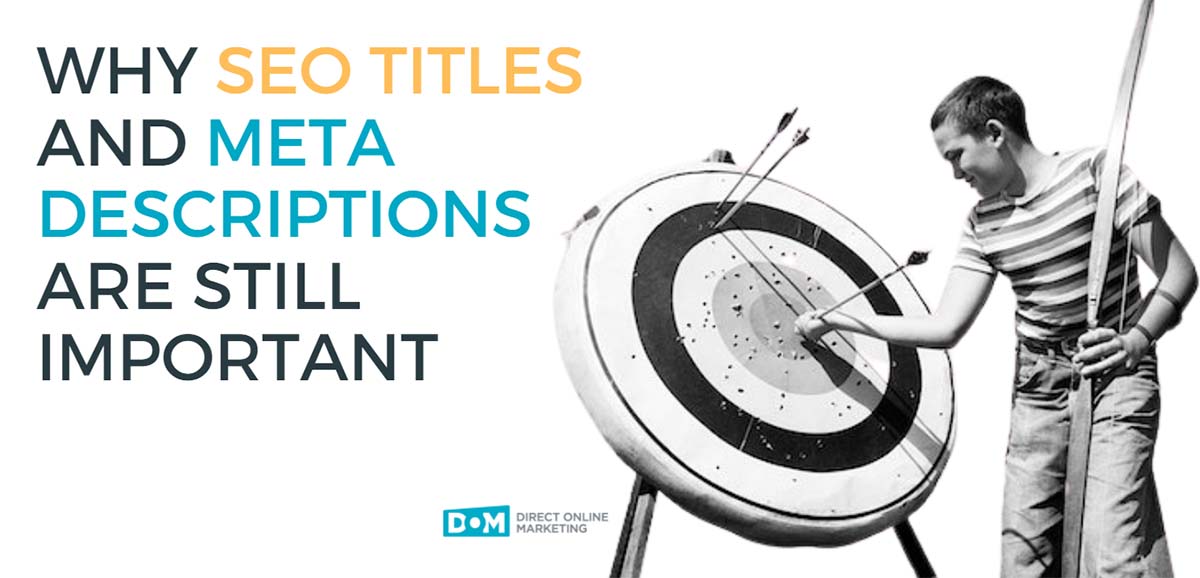
SEOs tend to gather in groups. A group of SEOs doesn’t have a cute collective noun like “murder of crows” or “colony of badgers,” though we can think of a few (a SERP of SEOs, maybe?). Anyway, we’re social creatures. So you might see us gathering together to talk about Google and other things that have nothing to do with search engines at all. If you encounter one of those groups and think they’re getting along too well and you want to throw a discourse grenade in the middle of their nice little powwow, try this one: “SEO titles and meta descriptions don’t matter anymore.”
Why Do People Think SEO Titles and Meta Descriptions Don’t Matter?
If you’re surprised to hear this little bit of news, we must be reading different forums. The SEO community is far from a consensus on the subject, as much as they have a consensus on anything. With Google’s continual algorithm updates and their hidden implications and mysterious ramifications, the ground beneath an SEOs foot sometimes feels like a waterbed.
The argument goes like this: Google doesn’t use your meta descriptions anyway—instead of using the info you embed in your <meta> tags, search engines will just generate their own based on the user’s search query. A similar argument is lodged against the SEO title because Google and others generate their own versions of titles.
While there are compelling reasons to follow that logic, we haven’t stopped using either of them. You shouldn’t stop using them, either.
Don’t forget one of the first lessons you learn about SEO: you don’t need to stop doing something until Google tells you to. If something is working for you, it will continue working until Google tells us otherwise. A lot of those things that Google doesn’t like are things you shouldn’t be doing anyway, like keyword stuffing. Google is not opaque about these things at all—check out the guidelines on their own documentation for a handy list of everything you don’t want to do.
One Is For Clicking, One Is For Reading
When you look at your analytics, you can see that Google doesn’t just measure how often somebody clicks on your website—it also measures how often they see that link using a metric called “impressions.” If you see a lot of impressions but not a lot of clicks, then your job is only partly done. After all, it doesn’t help your bottom line very much if all those clicks go to somebody else in those SERPs.
An SEO title is meant to make people want to click it, while the page title (which we also call the “title tag”) is the one at the top of your page that describes what the user is about to read. Those are two different tasks, so it’s a good idea to craft two different titles.
The meta description works the same way but in a longer form. Google likes to use meta descriptions to teach it more about the link it’s showing in SERPs. If it’s not entirely sure what information is available on a page, it can use the meta description to figure it out. There aren’t many ways to directly influence what Google shows its searchers, but the meta tags offer one. But don’t take our word for it: Google themselves will tell you the exact same thing.
It’s true that Google might ignore these in favor of its own, but it’s hard to predict when, say, Google will swap out your title for something it found somewhere else. Even if Google doesn’t use the SEO title and meta description you write for your web page, it will still use those to learn about the content you’ve made for them.
We asked two of our resident SEO wizards for their takes, too:

—Billy Wright, Senior Digital Marketing Strategist

Meta descriptions are like mini-elevator pitches for why someone might be interested in clicking on a page in a SERP. Always ask yourself, ‘If I were a potential website visitor interested in this topic, is the description compelling enough to get me to click?'”
—Jason Ohsie, SEO Department Manager
The good news for digital marketers is that while search engine algorithms might sift the sands a little here and there, the same big, bedrock rules of SEO are still as stable as ever. If you’re ever feeling like you don’t know what to do, write some good content, keep your core web vitals in good shape, and let your work speak for itself. After all, Google still loves to give people answers to their questions, and good content will do exactly that.
You can get in touch with us today if you’d like some expert attention on your SEO, or you can read these related blogs:
- What is the Best Website Builder for SEO?
- How to Do Local SEO in 2021
- How Can Website Design Affect SEO?
To get more information on this topic, contact us today for a free consultation or learn more about our status as a Google Premier Partner before you reach out.


